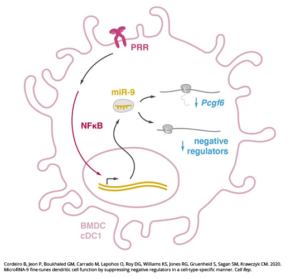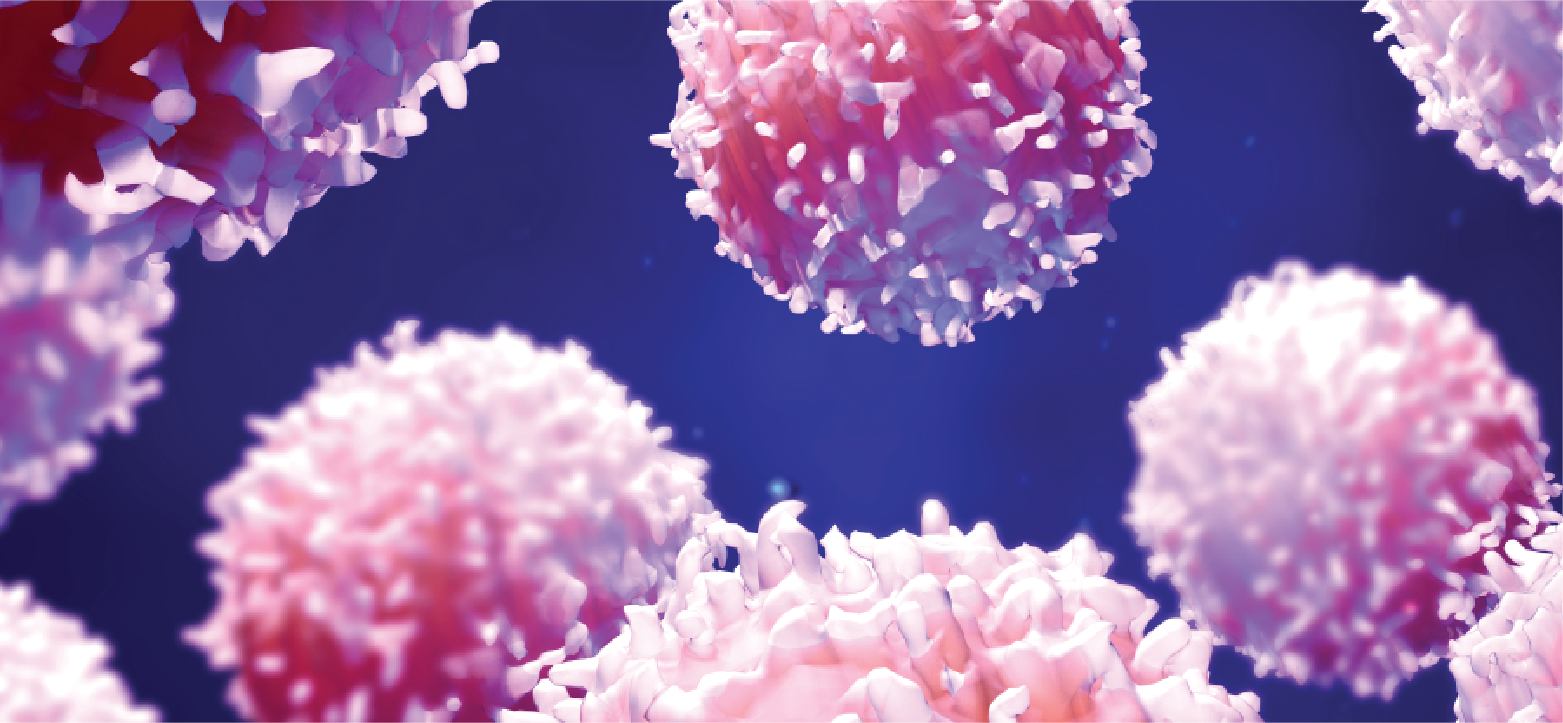GRAND RAPIDS, Mich. (May 18, 2020) — The immune system’s ability to marshal specialized cells to fight off infection relies in part on tiny molecules called microRNAs, which act as a release for the “brakes” that keep cells dormant until needed, according to a new study published in the journal Cell Reports.

“These small microRNAs have an important role in balancing the on/off state of the immune system,” said Connie Krawczyk, Ph.D., an associate professor in Van Andel Institute’s Metabolic and Nutritional Programming group and the study’s senior author. “Our findings reveal new insights into the nuts and bolts of immune function and add to a growing body of knowledge that could one day be leveraged to optimize vaccines or immunotherapies for a number of diseases.”
The human body’s immune responses are orchestrated by a host of different cells and components, each with their own role in fighting off pathogens, clearing out abnormal cells like cancer and jump-starting the healing process. In the absence of a threat, immune cells must remain at the ready, but in a “resting” state.
MicroRNAs are part of this intricate defense system. These small RNA molecules can rapidly regulate gene expression, which in turn directly impacts immune responses. Importantly, Krawczyk and her colleagues found that a single microRNA can be responsible for regulating multiple genes in one cell type while having little effect in another cell type, an adaptation that fine-tunes the immune response and ensures the right immune cells deploy at the right time.
 For example, a specific microRNA called microRNA-9 helps determine when dendritic cells, which initiate immune responses, are active or inactive by regulating the “brakes” that help keep cells dormant. Once called to action, microRNA-9 releases the “brake,” allowing access to the genes needed to put the cell to work.
For example, a specific microRNA called microRNA-9 helps determine when dendritic cells, which initiate immune responses, are active or inactive by regulating the “brakes” that help keep cells dormant. Once called to action, microRNA-9 releases the “brake,” allowing access to the genes needed to put the cell to work.
“Our study really gets into the weeds of how the immune system works and how it is able to be so specific in its response to pathogens,” Krawczyk said. “The findings add to the growing evidence backing the therapeutic potential of microRNAs.”
Other authors include Ph.D. student Brendan Cordeiro, Orsolya Lapohos, Samantha Gruenheid, Ph.D., and Selena M. Sagan, Ph.D., of McGill University’s Department of Microbiology and Immunology; Peter Jeon, Giselle M. Boukhaled, Mario Corrado and Dominic G. Roy, Ph.D., of McGill University’s Goodman Cancer Research Center; and Kelsey S. Williams, Ph.D., and Russell G. Jones, Ph.D., of VAI’s Metabolic and Nutritional Programming group.
Research reported in this publication was supported by the National Sciences and Engineering Research Council (NSERC) under grant nos. RGPIN/2018-06257 and RGPIN/419537-2012 (Krawczyk). Brendan Cordeiro was supported by the McGill Integrated Cancer Research Training Program, the Fonds de la Rescherche du Quebec-Santé and the Canadian Institutes of Health Research. The content is solely the responsibility of the authors and does not necessarily represent the official views of the granting organizations.
###
ABOUT VAN ANDEL INSTITUTE
Van Andel Institute (VAI) is committed to improving the health and enhancing the lives of current and future generations through cutting edge biomedical research and innovative educational offerings. Established in Grand Rapids, Michigan, in 1996 by the Van Andel family, VAI is now home to more than 400 scientists, educators and support staff, who work with a growing number of national and international collaborators to foster discovery. The Institute’s scientists study the origins of cancer, Parkinson’s and other diseases and translate their findings into breakthrough prevention and treatment strategies. Our educators develop inquiry-based approaches for K-12 education to help students and teachers prepare the next generation of problem-solvers, while our Graduate School offers a rigorous, research-intensive Ph.D. program in molecular and cellular biology. Learn more at vai.org.
Media Contact
Beth Hinshaw Hall
Van Andel Institute
[email protected]
616-822-2064
Media assets available: Portrait of Dr. Connie Krawczyk
